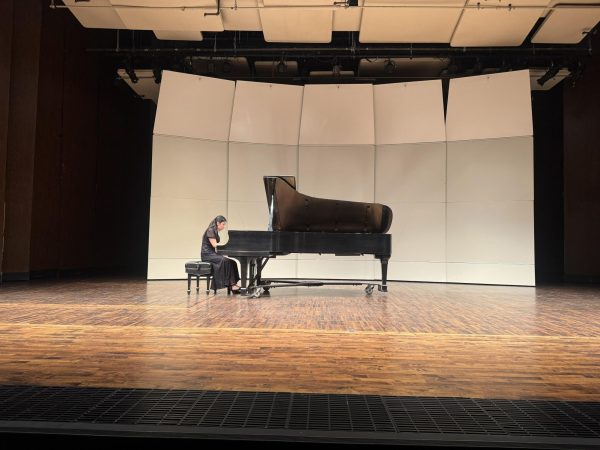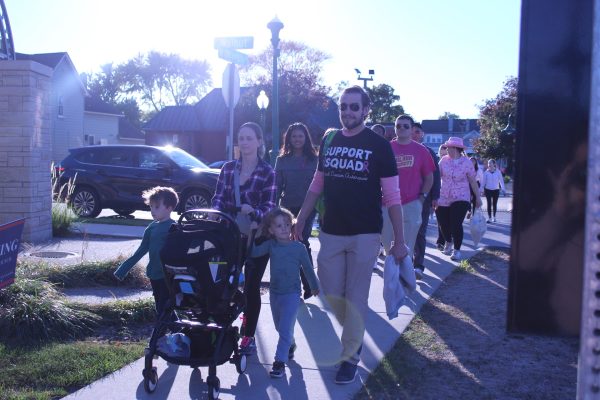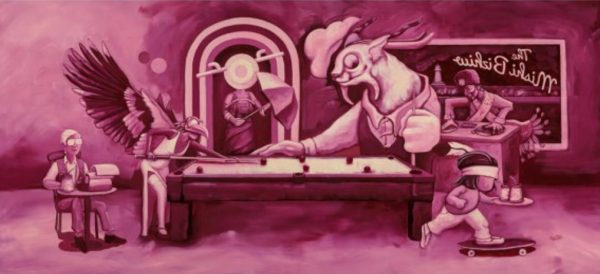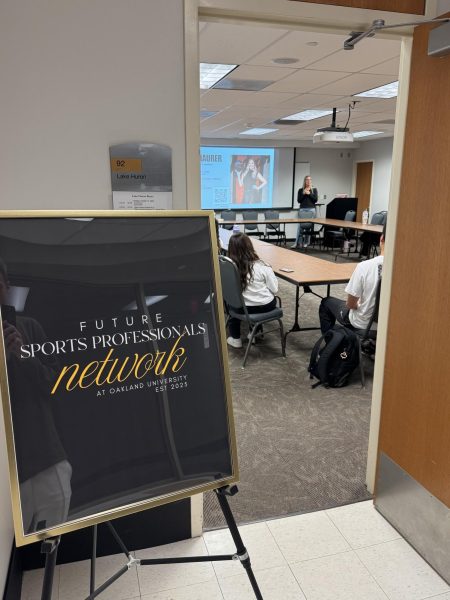Trans rights panel promotes understanding and empathy
The Gender and Sexuality Center and Oakland University Libraries hosted the discussion panel “Trans Rights Are Human Rights” on Thursday, March 18.
Hosted over Zoom, Dean Nasreddine moderated the panel consisting of Lilliana Reyes and Jey’nce Poindexter of the Trans Sistas of Color Project and the Ruth Ellis Center, OU criminal justice student Evan Berns and ACLU of Michigan attorney Jay Kaplan. According to a flyer for the event, Nasreddine would help the panel navigate a discussion on issues facing transgender people such as access to safe housing, violence against trans people, legislation that threatens trans people and other topics of concern.
But for any meaningful discussion to occur, organizers and speakers had to work around a platform-unique hindrance: connection issues.
Technical difficulties plagued the meeting before speakers had a chance to introduce themselves. Speakers were unable to hear each other, everyone in the room was temporarily muted and silent panelists with frozen screens sent chat messages asking if they were being heard. Members of the room assumed high winds as the cause of the problems.
Once everyone decided turning off their cameras and changing the host would help stabilize the connection, Nasreddine introduced the panelists and kicked off the discussion.
“When we talk about trans rights, what we are talking about is a varied set of things from employment opportunities, healthcare, housing and safety — even just like walking down the street to how trans people are treated in the criminal justice system,” Nasreddine said. “Every one of these issues at the end of the day is rooted in keeping trans people from authentically and actively engaging in public life as their true selves.”
Nasreddine’s first item for the panel discussion focused on the rise of anti-trans law proposals at the state level around the country, especially a bill in Alabama that makes administering hormones, puberty blockers and performing gender-affirming surgeries on people 19 years old and younger a felony.
“We think [the Alabama bill] is ridiculous,” Reyes said. “Not only is it ridiculous, it is discriminatory to specifically say that someone’s medical care — very specific medical care — is a felony.”
Nasreddine followed by commenting on the way anti-trans groups target trans youths, which Kaplan responded to by confirming that anti-trans groups target youths as a way to shut down progress toward LGBTQIA+ civil rights.
“Opponents of LGBT rights — having lost marriage equality — having tried to use bathrooms as this new tactic and their target is transgender youth, as well as access to medical care,” Kaplan said. “They are trying to use this as a basis to prevent civil rights legislation from passing. It is no surprise that in the debate over the Equality Act … that opponents are bringing up those very same issues about treating transgender youths as well as about participating in school sports. This is an orchestrated, coordinated effort in most state legislatures … to promote fears about providing equality for LGBT people by focusing on trans youths.”
Kaplan expanded on why anti-trans organizations lean into the youth sports angle for opposing LGBTQIA+ civil rights.
“It kinda plays into their narrative that these are these innocent children, and by supporting the transgender identity of a trans young person, somehow you are putting them in harm,” Kaplan said. “The rationale behind trans youths — particularly trans girls — have an unfair competitive advantage in sports. The premise of all this legislation is based on mistruths and false information about transgender people, yet it plays into the emotions of people who can be persuaded not to support LGBT civil rights based on some of those mistruths.”
Nasreddine followed up by asking the panel how they thought the bills would affect the lives of trans people if passed.
“I think these bills are going to harm trans kids,” Berns said. “If something passed that let trans kids compete in sports as the gender they identify as, that would be such an amazing thing. If these bills were to pass and not allow kids to compete in their correct gender identity … the negative consequences will have a fundamental effect against them.”
Technical difficulties returned after Berns’ answer, but Nasreddine was able to ask about how the fight for trans rights intersects with other civil rights struggles. Berns replied by stating the trans rights struggle could intersect with many other struggles such as housing and healthcare rights. Kaplan concurred and connected the trans rights struggle to fights for racial equality, particularly in regards to economic and criminal justice disparities.
“We see frequently trans people of color are more likely to have negative encounters with law enforcement, more likely to be involved in the criminal justice system, more likely to face issues involving … the correctional system as well,” Kaplan said. “There are definitely connections to anything involving racism.”
At this point Kaplan was disconnected from the call. Over the next few minutes, the number of people on the call dropped to 13, about half of how many were connected at the event’s peak. Reyes had also been disconnected from the call by this time.
The hour was approaching its end, and Nasreddine decided to close the room on the question of how cisgender people — people whose gender match the one they were assigned birth — can be better allies for their trans peers. Berns suggested that cis people can avoid certain reactions when a trans person comes out to them, such as saying “I had no idea you were trans.”
“Continue to treat everybody the same,” Berns said. “We are all human beings. It does not matter if somebody is cisgender or if somebody is transgender, we should all treat each other the same.”
The next OU Pride Month event, “Hot Topics in LGBTQ Film, Media, and Video Games,” will be on March 23 from 4-5:30 p.m.







